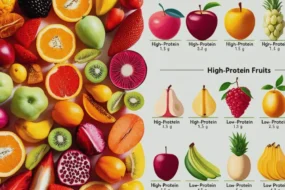
Apple juice is a beloved beverage worldwide, with a refreshing flavor and notable health benefits. Whether freshly squeezed or store-bought, it should be stored in the refrigerator to prevent it from going rancid.
This issue affects every consumer who wants to enjoy the pure taste of apple in mixed beverages or on its own. This subject is essential to address, as this blog post explains why refrigeration preserves the taste and quality of all kinds of apple juice.
Why Storing Apple Juice in the Refrigerator Is So Important
Storing apple juice in the refrigerator is crucial to prevent bacterial growth, maintain freshness, and preserve its flavor and quality. It also slows down fermentation, especially in warm environments.
Types of Apple Juice
- Freshly Squeezed Apple Juice:
Made from pressing apples directly, this type has a rich flavor and high nutrients but is highly perishable. It must be refrigerated to avoid bacteria and maintain freshness.
- Cold-Pressed Apple Juice:
This version is created with hydraulic presses that use pressure to extract juice. It is packed with live enzymes and natural flavors but has a shorter shelf life and requires strict refrigeration to stay safe for consumption.
- Unpasteurized Apple Juice:
This juice contains natural enzymes and more nutrients because it isn’t heat-treated. However, it’s susceptible to pathogens and should be stored in the refrigerator to preserve quality and safety.
- Pasteurized Apple Juice:
This juice is heat-treated to kill bacteria, making it safer for stores and supermarkets. Although it has a longer shelf life, pasteurization can slightly reduce its freshness and flavor.
- Organic Apple Juice:
Produced from organic apples grown without synthetic pesticides or fertilizers, this type may appeal for its natural preparation but still requires proper refrigeration after opening.
Each type should be stored in the refrigerator to keep flavor and freshness intact, especially once opened.
Unrefrigerated Apple Juice: Reasons to Go Bad
Leaving apple juice out of the refrigerator can make it turn bad surprisingly fast, especially in hot regions like the Middle East, GCC, East Asia, and South America. The heat in these areas speeds up the fermentation process caused by bacteria and yeast.
These microorganisms thrive in warm temperatures, consuming the sugars and carbohydrates in the juice and converting them into alcohol and other byproducts. I’ve noticed that when apple juice ferments, it can taste sour and become carbonated, much like the sensation you get when questioning, “Is Protein Powder Safe During Pregnancy?” as it requires awareness of risks.
Spoiled juice quickly becomes cloudy and discolored and develops a disagreeable taste, making it unsafe to drink.
- To ensure fresh, squeezed, cold-pressed, or organic apple juice maintains its purity, freshness, and quality, I always refrigerate it within a few days of opening.
- Unlike orange juice, apple juice’s shelf life is substantially shorter, partly because it has a lower pH, making it more acidic and welcoming to microbial growth.
- Drinking unrefrigerated juice could pose significant health risks, particularly for children or those who must avoid alcoholic content. If left at room temperature, the natural liquids in apple juice may eventually taste like wine or beer, a transformation that’s unpleasant and dangerous.
Best Ways to Store Apple Juice for Extended Freshness
To store apple juice for a long time, it’s essential to refrigerate it immediately in an airtight container at a temperature below 40°F (4°C) to preserve its freshness.
From my experience, properly storing juice can keep it tasting great and safe for up to eight months when transferred to freezer-safe containers, a highly effective method for extending shelf life.
You could also try canning or even pasteurizing to protect the juice, though some people go further by dehydrating it and later transforming it into a puree. Using these methods ensures your juice stays delicious and fresh without compromise.
- Refrigeration is Critical
To store apple juice properly, keep it in the refrigerator at a cool temperature below 40°F (4°C) to inhibit the growth of bacteria, yeast, and mold that can quickly ruin the juice. In hot regions like the Middle East or the Gulf, the heat creates an environment where these microorganisms reproduce faster, making refrigeration even more critical.
Using a well-packed glass or plastic container helps maintain the freshness and can extend the juice’s shelf life for several weeks. This is critical in preventing spoilage and keeping the juice’s quality, especially when dealing with high temperatures.
- Freezing for Long-Term Storage
For storing apple juice for an extended period, freezing can be an excellent option to keep it fresh. First, pour the juice into sealed, freezer-safe containers, leaving headspace for expansion when it freezes. Ensure the containers are firmly packed and securely closed to avoid freezer burn and maintain quality.
Although frozen apple juice can be stored for up to eight months, drinking it within three to four months is recommended for the best taste and quality. This way, you can enjoy fresh-tasting juice even when it’s been in the freezer for a long time.
- Canning for Freshness
Canning is a practical approach to storing apple juice for an extended period without compromising its flavor. Start by immersing jars and lids in boiling water to sterilize them, then fill each jar with heated juice, leaving some headspace. Seal tightly and use a water bath canner to complete the canning process, following the manufacturer’s instructions.
When adequately canned, apple juice can last up to a year if stored in a cold, dark place. This keeps your juice fresh and delicious for a long time without refrigeration.
- Pasteurization to Extend Shelf Life
Pasteurization is a reliable way to extend the shelf life of apple juice by heating it to kill harmful bacteria, yeast, and molds. To pasteurize at home, heat the juice to 160°F (71°C) and hold it there for about six seconds.
Once pasteurized, store the juice in sterilized, airtight containers and keep it chilled in the refrigerator or freezer for more extended storage. This process keeps your juice fresh and safe, maintaining quality for an extended time.
- Making Apple Puree
Making apple puree is a clever technique for preserving apple juice for longer storage. Heat the juice until it thickens and reduces to a puree-like consistency, then fill sterilized jars halfway, leaving some headroom. Seal tightly and store the jars in the refrigerator or freezer. This approach preserves the juice’s fresh taste and can be used in baking or when preparing sauce for various recipes.
FAQ’s
Q: What Happens if you Don’t Refrigerate Juice After Opening?
Once juice is opened, it’s recommended that the container be put in the refrigerator. Air and warmth can cause bacteria, yeasts, and molds to grow, compromising its quality and making it unsafe to drink, which could lead to potentially serious food poisoning.
Q: What Happens if you Drink too Much Apple Juice?
Excessive drinking of apple juice can result in gastrointestinal issues like diarrhea and flatulence. Research has found that the presence of sorbitol and fructose in apple juice may induce these symptoms if consumed in large amounts.
Q: What is the Difference Between Pasteurized and Unpasteurized Juice?
Pasteurized juices are heat-treated to destroy pathogens, germs, and microbes that can make you sick. This process also keeps pasteurized juice longer by reducing spoilage compared to unpasteurized juice, which is often raw and freshly pressed.
Conclusion
In conclusion, storing apple juice in the refrigerator is essential to maintain its freshness, quality, and safety across all types. Each storage method, from freezing and canning to pasteurization and even turning juice into apple puree, helps extend the shelf life while preserving taste.
Given how quickly apple juice can spoil due to its natural sugars and acidity, especially in warmer regions, refrigeration plays a critical role in slowing bacterial growth and preventing fermentation.
Proper storage not only keeps the juice enjoyable but also protects against potential health risks, ensuring you and your family can savor the rich, natural flavors of apple juice for longer.
I’m Ayesha Zahid, a certified Nutritionist and Dietitian with over 3 years of hands-on experience helping individuals and families improve their health through nutrition.



